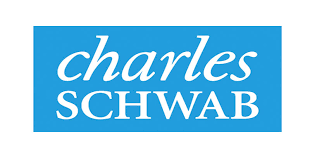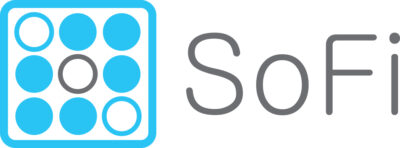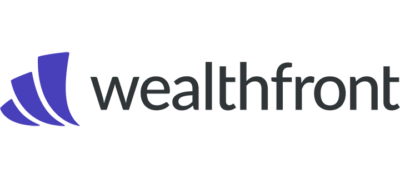If you’re looking for the best Roth IRAs, we’ve explored what’s available to give you Roth IRAs for both hands-on and hands-off investors. The Roth IRA accounts listed below feature low fees, strong customer service, intuitive investing platforms, and robust features. We break down our top picks so you can decide which is the best Roth IRA for you.
Table of Contents
Best Roth IRAs for Hands-On Investors

1. Fidelity
- Account minimum: $0
- Fees per trade: $0
- Pros: Customer-first approach, free research and data, zero-expense-ratio mutual funds, and intuitive trading platform
- Cons: Broker-assisted trading fees are higher than average
Rating 5.0
Fidelity has been a long-time winner for investors because it offers a large selection of ETFs and expense-ratio-free index funds, powerful research options, and advanced trading options.
The benefits of Fidelity extend to its Roth IRA offering, and even hands-on investors will also appreciate Fidelity’s knowledgeable customer service team just in case they have questions.
Despite how well Fidelity rates for advanced traders, it’s also one of the best Roth IRAs for beginners who are starting to plan for retirement. Fidelity has always had a customer-focused approach, extending beyond customer service to low fees, including transfers and mutual funds, and they were the first brokerage to offer its own zero-expense-ratio mutual funds.
2. Merril Edge
- Account minimum: $0
- Fees per trade: $0
- Pros: Exceptional customer service, access to in-person support, and robust third-party research
- Cons: Fewer low-expense-ratio mutual funds compared to competitors
Rating 4.5
Formerly known as Merrill Lynch, Merrill is a robust, full-service brokerage that’s known for stellar customer service, especially for those who occasionally want some hands-on support. Because Merrill is now owned by Bank of America, clients can access customer service at one of its over 4,300 locations nationwide.
Current Bank of America customers will love how seamlessly Merrill’s Roth IRA account integrates with their current platform, and you can access all of your accounts from one platform.
But what new customers will enjoy about Merrill is that your Roth IRA comes with access to intensive third-party research so you can make the most informed investments possible.

3. Charles Schwab
- Account minimum: $0
- Fees per trade: $0 trades
- Pros: Can take a self-directed or robo-advisor approach, detailed ETF screening, and socially responsible investment options
- Cons: Slightly higher mutual fund costs, and Intelligent Portfolios has a $5,000 minimum (the $0 minimum is for hands-on investors)
Rating 4.5
Charles Schwab has long-time name recognition, but there’s a good reason for that. Schwab offers excellent customer service, extensive ETF screening, a wide range of socially responsible investment options, and planning tools.
While Charles Schwab is a top choice for hands-off investors, its Intelligent Portfolios robo-advisor gives new investors an automated approach as well. The Intelligent Portfolio recommends a financial advisor-driven portfolio designed to meet each retirement investor’s goals.
Best Roth IRAs for Hands-Off Investors
4. Betterment
- Account minimum: $10
- Account fees: 0.25% for the Digital plan, 0.40% for the Premium plan
- Pros: Goal-based planning tools, access to one-on-one human support, and fractional shares so all of your cash is invested
- Cons: For the Premium plan, you need at least $100,000 invested and will see a higher fee
Rating 5.0
There’s a lot to love about Betterment if you want a hands-off experience. First off, Betterment offers robust planning tools, tracking dashboards, account aggregations features, and there’s even access to human support.
Being able to speak with a human advisor is unique with robo-advisors, and Betterment gives you two options. You can pay for the Premium plan and have unlimited calls and emails with Betterment’s team of CFPs, or you can pay a one-time fee for a financial planning package, which includes a one-on-one call with a CFP.
Besides human support, Betterment has one of the best Roth IRAs because it offers flexible portfolio options, socially conscious strategies, integrated checking and savings accounts, and optional exposure to cryptocurrency.
5. SoFi
- Account minimum: $0
- Account fees: $0
- Pros: Free account management, automatic rebalancing, strong customer support, and a wide range of low-cost investments
- Cons: No tax-loss harvesting and limited account types
Rating 5.0
SoFi is most well-known for student loan refinancing, but they’ve expanded into the personal finance sector with mortgages, personal loans, banking, and investing — including one of the best Roth IRAs for cost-conscious investors.
The main benefit of SoFi’s Roth IRA account is that there are $0 account or management fees. Plus, once you become a SoFi client, you may be able to take advantage of customer discounts on other SoFi products.
But there’s more to love about SoFi than the cost alone. It offers a broad range of low-cost investments, automatic rebalancing, and access to CFPs if you want one-on-one support.
6. Wealthfront
- Account minimum: $500
- Account fees: 0.25% management fee for most accounts
- Pros: Financial planning tools, customizable portfolios, automatic rebalancing, and tax-loss harvesting
- Cons: Doesn’t offer fractional shares, no access to human advisors, and no discounts for high-balance accounts
Rating: 4.5
Wealthfront approach is to create portfolios out of low-cost ETFs so investors have a diversified and automated approach to retirement savings. It’s one of our best Roth IRAs because it offers robust financial planning tools that help you evaluate your financial standing and automate a savings plan.
Additionally, Wealthfront offers integrations for banking so you can access your finances all in one place. It’s also staying up with the curve by offering customized portfolios for investors who want to put their money behind socially responsible investments, cannabis, cryptocurrency, REITs, and more.
What is a Roth IRA?
Roth IRAs are a type of tax-advantaged individual retirement account that requires you to contribute after-tax dollars. Contributions aren’t tax-deductible, but Roth IRAs allow you to take tax-free withdrawals upon retirement.
The idea of a Roth IRA is that you pay taxes on your earnings now to keep your retirement savings tax-free in the future.
A Roth IRA is similar to a traditional IRA, but the significant difference is the tax burden. Traditional IRAs are funded with pre-tax dollars and you pay taxes when you withdraw money, versus a Roth IRA that is funded with after-tax dollars, but once you start withdrawing funds, the money is tax-free.
Many financial institutions offer Roth IRAs, including banks, robo-advisors, and brokerages, each offering different types of investments. What you can earn on your retirement savings, even with the best Roth IRAs, depends on what you’re invested in.
How much can you contribute to a Roth IRA?
Roth IRA contribution limits change year by year, and for 2022, the contribution limit is $6,000. Participants who are 50 or older can contribute an additional $1,000 as a catch-up contribution, bringing the limit to $7,000 for 2022.
Because you can hold both a Roth and traditional IRA at the same time, it’s important to understand that the limit is per person, not per account. That means your total contributions to both a Roth and traditional IRA may not exceed the annual limit.
Are you eligible for a Roth IRA?
The IRS sets income limitations for Roth IRA participants, and they’re currently set at:
- $129,000 to $144,000 – Single taxpayers and heads of household
- $204,000 to $214,000 – Married, filing jointly
- $0 to $10,000 – Married, filing separately
The reason the IRS limits access to Roth IRAs is that they were created to offer everyday (read: not wealthy) Americans access to tax-advantaged retirement savings accounts.
For those who exceed the income limitations, you may want to explore a backdoor Roth IRA contribution. It’s a complex and legal strategy that involves converting or transferring their IRA. The Build Back Better Act may eliminate backdoor Roth IRAs, but the bill is currently stalled.
Roth IRAs are best for
Because of how the tax advantage works, Roth IRAs are best for people who are confident that they’ll have a higher income in retirement than they do now.
Again, the reason is that you make contributions to your Roth IRA with after-tax dollars, meaning you’ve already been taxed on that income at your current tax rate. Once you retire, you can take tax-free withdrawals.
What makes for the best Roth IRAs?
Our methodology when researching the best Roth IRAs involved looking at the following factors:
- Fees: Because all of the Roth IRAs on this list are through online brokerages, you can expect low fees overall, both for account management and trading fees. Robo-advisors, which have the best Roth IRAs for hands-off investors, typically charge management fees, so we looked for ones that were lower-than-average, without compromising service or features.
- Customer service: Stellar customer service is key. We believe you should be able to access a customer service representative if you have any issues or concerns affecting your investments.
- Features: Educational resources, planning tools, third-party research, and more — we took an independent look at what each platform offered and read reviews to compare each brokerage’s features and tools. We believe the types of features offered can significantly enhance your experience when they’re done well.
- Platform/app: Every brokerage takes a different approach to designing their trading platform or app, and the design speaks to the kinds of investors they’re appealing to. Hands-on investors need a robust and intuitive platform, while hands-off investors can benefit from a streamlined app that still makes it easy to keep track of their investments. No matter what type of Roth IRA investor you are, you need a brokerage that gives you a positive user experience.
The final word on best Roth IRAs
A Roth IRA can be an excellent way to save for retirement. It’s a great option if you lack an employer-sponsored retirement plan, and there are even Roth IRAs for self-employed workers.
And never feel like it’s too late to start saving for retirement. With our guidance and a few research options, you can still take advantage of one of the best Roth IRA accounts available and start investing today.
FAQ’s
It all depends on what you’re looking for in a Roth IRA account. If you want to take a hands-off approach, we recommend Betterment, SoFi, and Wealthfront. Fidelity, Merrill Edge, and Charles Schwab are our picks for the best Roth IRAs for hands-on investors.
The advantage of a Roth IRA is that you can withdraw qualified earnings tax-free in retirement. However, your contributions are made with after-tax dollars.
Your Roth IRA’s ability to make you money depends on your investments and the market overall.
Short answer: yes! Retirement investing is always a good idea, and a Roth IRA is an excellent option if you’re looking for a tax-advantaged way to save for retirement. Additionally, Roth IRAs have added benefits like being a backup emergency fund for specific scenarios like medical insurance premiums if you’ve lost your job.

